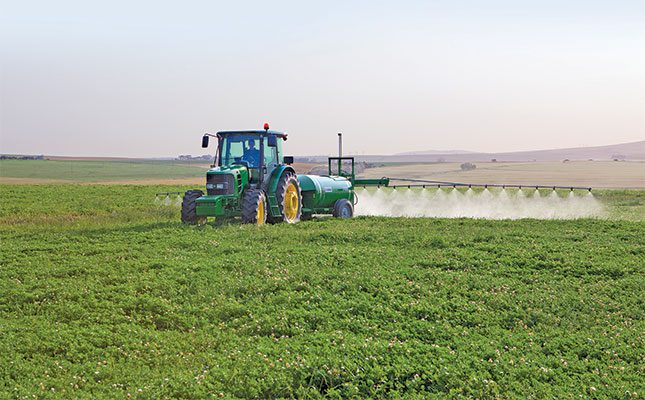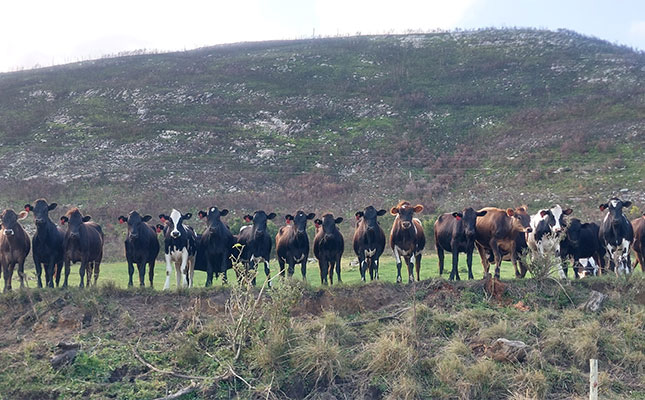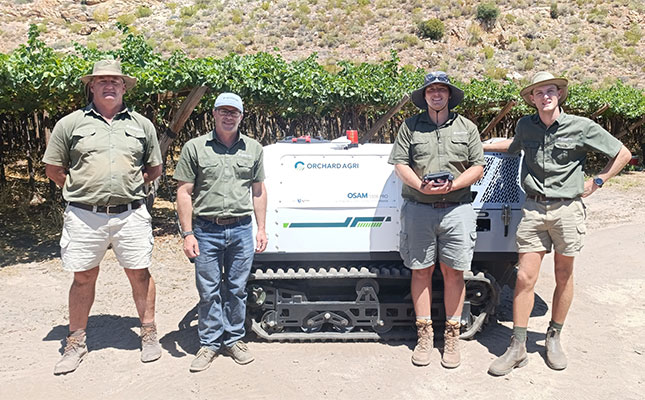
This followed a briefing to the committee last week by the South African Human Rights Commission (SAHRC) and the South African People’s Tribunal on AgroToxins (SAPToA) on investigations into the use of harmful pesticides in the agriculture sector.
While the SAPToA-SAHRC report is not yet complete, and it is unclear when it will be released, SAHRC commissioner Philile Ntuli stated that the commission remained concerned about the use of HHPs, such as terbufos, and called for Parliament and government to act on the matter.
There are 192 HHPs, including terbufos, registered and legally in use in South Africa. Fifty-seven of these are banned in the EU, while only 16 of them have partial bans or restrictions in South Africa. Thirty-six belong to the most hazardous class.
Dina Pule, chairperson of the portfolio committee, said the committee has been promoting regenerative agriculture and the use of non-hazardous and ecologically-friendly products that are utilised in other regions and countries where HHPs are banned.
“Government is obligated by the Constitution and international agreements that the country signed, to act on the use of HHPs and other toxic chemicals to protect human lives and the environment for the benefit of future generations.”
Pule added that the committee would strengthen its oversight responsibility to ensure that government implemented the international obligations to which South Africa was a party, including domestic legislation.
“This will be done by holding joint activities with the relevant committees in Parliament, as such agreements and some of the domestic legislative prescripts cut across different sectors and [do] not just [pertain to] agriculture.
“For example, while most of the international agreements have implications for agriculture, they fall within the Department of Forestry, Fisheries and Environment.
“The committee consistently pushes the Department of Agriculture for the review of old and irrelevant legislation, like the outdated Act 36 of 1947 that deals with pesticides and other agricultural remedies.”
According to Elriza Theron, advocacy and communications manager at CropLife South Africa, chemicals are a vital tool that farmers need to protect their crops from devastating pests and diseases.
“However, this must be done without harm to human or animal health, or the environment, which is why the industry is regulated and must abide by numerous acts, accompanying regulations and standards. To phase out certain products, growers must have alternative solutions to protect their crops, but developing these solutions also takes time because we must ensure that they are effective and safe.”
Rico Euripidou, chemicals and campaigns support for groundWork, told Farmer’s Weekly there are alternatives to HHPs like terbufos.
“These alternatives aim to reduce the risks associated with HHPs while enhancing agricultural resilience and productivity. The key though is to begin the transition in a multi-stakeholder, multi-sectoral approach, listening to everyone including farmworkers, farmers, scientists, civil society, government and also industry. At present, the agri-chemicals industry seems to have the biggest say.”
A pragmatic approach is needed, says Euripidiou.
“A pragmatic approach tries to balance these competing priorities through the gradual phasing out of the most harmful pesticides, giving time for farmers and industry to adapt.
“Integrated pest management, biopesticides, precision agriculture and organic methods that reduce chemical use also needs to be promoted.
“Farmers need to be supported through training, subsidies for safer alternatives and research into crop varieties with natural resistance.
“It should further be recognised that different regions have different needs; what works in the EU might not be feasible in sub-Saharan Africa without major support.”
Get trusted farming news from Farmers Weekly in Google Top Stories.
➕ Add Farmers Weekly to Google ✔ Takes 10 seconds · ✔ Remove anytime










